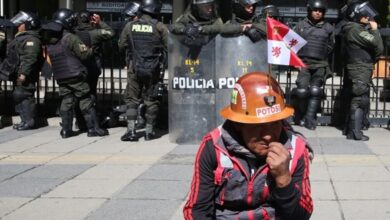Nicaragua Moves to Standardize Prices in Local Currency

Nicaragua’s Central Bank mandates that all goods and services be priced in córdobas starting January 2025, while remittances and international transactions remain exceptions. The new policy reflects a broader effort to stabilize the country’s economy amid reliance on remittances.
A Shift to the Córdoba for Domestic Transactions
Nicaragua’s Central Bank has announced a firm economic policy. Starting January 1, 2025, all price tags inside the country must show prices only in córdobas, the national money. This policy tries to simplify how the economy works, steady payments within the country, and increase trust in the local currency. It focuses on the national córdoba.
The Central Bank has permitted exceptions for some deals in international trade, remittances, and financial services. These exceptions include exports, imports, global transportation, and real estate deals using foreign money. Family remittances are significant for Nicaragua’s economy, so people will still get funds in foreign currencies like the U.S. dollar. Remittances stay the same.
The Central Bank stated: “Prices for goods and services in the country must be displayed in córdobas. Users may choose to pay in either foreign currency or córdobas as they see fit.”
This action tries to strengthen control of local money while understanding the real needs of businesses and families that depend on foreign cash. They respect the necessities of those earning foreign money.
The Crucial Role of Remittances in Nicaragua’s Economy
The exception for family remittances underscores their paramount importance to Nicaragua’s economy. In 2023, Nicaraguan families received a record $4.66 billion in remittances, a staggering increase of 40.5% from 2022. Official figures reveal that over $3.5 billion originated from the United States, highlighting the country’s profound reliance on its diaspora.
These remittances now account for 26.1% of Nicaragua’s Gross Domestic Product (GDP), up from 23% in the previous year. Such figures emphasize the lifeline foreign income represents for Nicaraguan families, many of whom use the funds for essential expenses such as education, healthcare, and housing.
For economists, maintaining flexibility with remittances is critical. Mandatory changes to córdobas might cause unexpected economic problems, especially in rural places where money from abroad directly supports people.
Remittances now form the backbone of Nicaragua’s economy. A regional economic analyst mentioned that the government chose not to convert this money into the local currency. This decision shows a practical approach to keep this money flowing smoothly.
The increasing dependence on remittances reveals serious issues in the Nicaraguan economy. Limited job opportunities at home and wages that barely grow create challenges.
Implications for Businesses and Consumers
The Central Bank’s policy mandates a clear shift for businesses: all domestic prices must now be displayed in córdobas, complete with the symbol “C$.” This applies to a wide range of goods and services, including essentials such as food, beverages, clothing, household items, and higher-value products like electronics, construction materials, and automobiles.
Service providers, such as those in hotels, schools, healthcare, and transportation, need to follow the rules. Restaurants, hotels, and fun places should charge prices in national money.
Business owners and shoppers hold divergent views on the new rule. While larger companies with established accounting systems may transition smoothly, smaller vendors express concerns about potential confusion and additional administrative burdens. A shop owner in Managua noted, “We’re accustomed to dealing in dollars because many customers prefer it. Transitioning everything to córdobas will take time, and some individuals might find it more challenging to comprehend prices.”
A shop owner in Managua remarked, “We’re accustomed to dealing in dollars because many customers prefer it. Transitioning everything to córdobas will take time, and some individuals might find it more challenging to comprehend prices.”
Consumers, especially those earning foreign money, may find it challenging to adjust their buying habits. The new policy could lead to changes in the cost of living due to inflation and fluctuating exchange rates. Many Nicaraguans are concerned about how the policy might affect the affordability of goods over time.
Officials have stated that standard prices could protect consumers and provide clarity. The Central Bank will be responsible for ensuring that businesses comply with the new policy. Regulatory bodies will be tasked with monitoring and enforcing the rules, and fines will be imposed on those who fail to comply.
Balancing Monetary Policy with Economic Realities
The Central Bank’s decision to implement the new policy reflects broader efforts to stabilize Nicaragua’s monetary system and strengthen trust in the córdoba. By using the local currency for pricing instead of the U.S. dollar, authorities believe this change will enhance the role of the córdoba in daily transactions, thereby promoting economic stability and independence.
This policy started when Nicaragua’s economy struggled with significant challenges. The country sees rising costs, little foreign investment, and a lot of dependence on money from outside. Policymakers face a challenging task. They need to apply new rules carefully while protecting money sent from abroad.
Success depends on people accepting the change, transparent information sharing, and vigorous rule enforcement. Experts say this policy fits global standards. Yet, Nicaragua’s situation, especially its dependence on money sent from other countries, needs special thought.
A financial analyst said that using córdobas for pricing is part of a bigger plan to stabilize markets. Other actions must help businesses and shield people from unexpected problems. Support for businesses and consumers is critical.
The government will be closely watched as it manages this change. At the same time, it needs to tackle issues of economic fairness and financial honesty.
Also Read: Nicaragua’s New Legal Reforms: A Step Toward State Surveillance
As Nicaragua implements the new currency policy, the country’s economic future depends on balancing control over its money and coping with reliance on money from abroad. The córdoba becomes very important. Yet, money sent by families still really matters for millions in Nicaragua.




